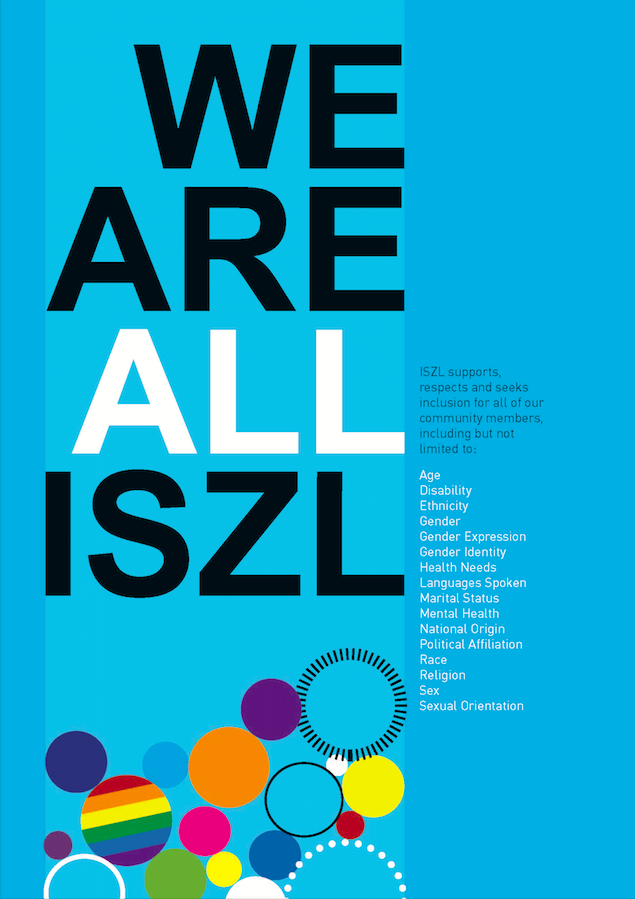Versão em portuguêsVersão em português
“We are stronger not despite our differences, but because of them.” ~Prime Minister Trudeau
The recent horrific and tragic attack at the mosque in Quebec and the subsequent categorical response from Canadians and concerned citizens around the world is a poignant reminder of one of our primary purposes as educators. As learning institutions, we must model and live by the highest standards associated with tolerance, empathy, and understanding while categorically rejecting all acts of hate, bigotry, and discrimination. The unique opportunity to serve as an educator includes an unwavering commitment to model and stand up for the values we hold dear in our schools.
While it is not the role of a teacher to promote and impose personal political views and beliefs, it is a teacher’s responsibility to denounce, without exception, all comments and actions that are not in full adherence with the school’s focus on valuing plurality, difference, understanding, respect, and tolerance. As intolerance is usually a result of fear and fear is often generated from a lack of understanding, the focus on learning in schools plays an ever-important role toward deeper understandings. The hope is that the suspicions and uncertainty that result from a lack of understanding or knowledge will be replaced with curiosity, support, and appreciation.
Prime Minister Justin Trudeau’s response to the shooting was a call to action and the coming together as a nation: “We will not stand for hatred and bigotry. Together we will ride from this darkness stronger and more unified than ever before. That is who we are… love, always love, instead of hate.” It is also heartening and inspiring to witness the commitment of our education colleagues and the focus of so many schools and organizations to take a stand against all that divides us. The message is clear in that if one of us suffers, we all suffer. By way of example, Asger Leth’s video, Three Beautiful Human Minutes, is a moving testimonial conveying the message that there is more that brings us together than we think. Teachers are also regularly seeking ways to embrace and learn from our differences. Alison Schofield recently posted a helpful article entitled, “How Teachers can Honor and Nurture all Students’ Languages and Cultures within an International School.” The University of Minnesota, where I am currently engaged in graduate studies, just launched a “We All Belong Here” campaign, with five key messages: 1. Our differences drive our greatness, 2. Respect everyone every day, 3. Rise above intolerance, 4. Stand up to injustice, 5. Strive to be inclusive.
This work is not easy, though it is of paramount importance. The studies of a colleague at the American School of Brasilia, Gavin Hornbuckle, highlights one of these challenges. Gavin conducted extensive doctoral research in the area of intercultural competencies. The results of his study and others indicate that “while teachers often believe that they possess the intercultural skill-set required to [help students to develop intercultural competence], in reality, this may not be the case” (Horbuckel, 2013). The research also stresses that the majority of educators have more of a monocultural mindset, while our students show evidence of being more sophisticated in their intercultural development” (Cushner, 2012). It is a fact that intercultural competence does not come naturally and is an area that we, as educators, need to continually work at, particularly as we seek to understand, embrace, and celebrate our differences.
Returning to Prime Minister Trudeau, one of his recent statements may serve as a guiding principle for our schools: “If we allow individuals and organizations to succeed by scaring people, then we do not actually end up any safer. Fear does not make us stronger, it makes us weaker. We are bound by one, unwavering, unshakable truth: we are stronger not despite our differences, but because of them”.
References:
Cushner, K. (2012). Planting seeds for peace: Are they growing in the right direction? International Journal of Intercultural Relations, 36(2), 161-168.
Hornbuckle, G. C. (2013). Teachers’ views regarding ways in which the intercultural competence of students is developed at an international school in Southeast Asia: a mixed methods study. Unpublished Doctoral Dissertation, University of Minnesota, Minneapolis, MN.
Featured image: cc licensed (CC BY-NC 2.0) Flickr photo by Roel Wijnants (Painting): https://www.flickr.com/photos/cosmosfan/14628522324
Versão em Português
“Nós somos mais fortes por causa das nossas diferenças e não apesar delas” ~ Primeiro- Ministro Trudeau
O recente, horrível e trágico ataque que ocorreu na mesquita no Quebec e a resposta subsequente dos canadenses e cidadãos preocupados ao redor do mundo é um lembrete pungente de um dos nossos principais propósitos como educadores. Como instituições de aprendizagem, devemos modelar e viver segundo os mais altos padrões associados à tolerância, à empatia e ao entendimento e assim rejeitarmos categoricamente todos os atos de ódio, intolerância e discriminação. A oportunidade única de servir como educador inclui um compromisso inabalável para modelar e defender os valores que prezamos nas nossas escolas.
Embora não seja papel do professor promover e impor pontos de vista pessoais políticos, éticos e morais é responsabilidade dele denunciar, sem exceção, todos os comentários e ações que não estão em total adesão ao foco da escola na valorização da pluralidade, diferença, compreensão, respeito e tolerância. Como a intolerância é, geralmente, resultado do medo e o medo é, muitas vezes, gerado a partir da falta de compreensão, o foco na aprendizagem nas escolas desempenha um papel cada vez mais importante para entendimentos mais profundos. A esperança é que as suspeitas e incertezas que resultam de uma falta de compreensão ou conhecimento serão substituídas por curiosidade, apoio e apreciação.
A resposta do primeiro-ministro Justin Trudeau ao tiroteio foi um apelo à ação e à união como nação: “Não iremos defender o ódio e o fanatismo. Juntos, vamos cavalgar a partir desta escuridão, mais fortes e mais unidos do que nunca. Isso é o que somos…amor, sempre amor, em vez de ódio.” É também animador e inspirador testemunhar o compromisso de nossos colegas de educação e o foco de tantas escolas e organizações em tomar uma posição contra tudo o que nos divide. A mensagem é clara, se um de nós sofre todos sofremos. Como exemplo, o vídeo de Asger Leth,Three Beautiful Human Minutes, é um emocionante depoimento que transmite a mensagem de que há mais coisas que nos unem do que pensamos. Os professores também estão regularmente buscando maneiras de abraçar e aprender com nossas diferenças. Alison Schofield publicou recentemente um artigo (article) útil intitulado “Como professores podem honrar e nutrir todos os idiomas e culturas dos alunos dentro de uma escola internacional.” A Universidade de Minnesota, onde estou atualmente envolvido em estudos de pós-graduação, acaba de lançar uma campanha “We All Belong Here”, com cinco pontos-chave:
- Nossas diferenças impulsionam nossa grandeza;
- Respeite a todos, todos os dias;
- Eleve-se acima da intolerância;
- Posicione-se contra a injustiça;
- Esforce-se para ser inclusivo.
Embora seja de suma importância, esse trabalho não é fácil. Os estudos de um colega da Escola Americana de Brasília, Gavin Hornbuckle, destacam um desses desafios. Gavin conduziu uma extensa pesquisa de doutorado na área de competências interculturais. Os resultados de seu estudo (study) e outros indicam que “embora os professores muitas vezes acreditem possuir um conjunto de habilidades interculturais necessárias para [ajudar os alunos a desenvolver a competência intercultural], na realidade, isso pode não ser o caso” (Hornbuckle,2013). A pesquisa também ressalta que a maioria dos educadores tem mais uma mentalidade monocultural, enquanto nossos alunos mostram evidências de serem mais sofisticados em seu desenvolvimento intercultural (Cushner,2012). É fato que a competência interucltural não vem naturalmente e é uma área em que nós, como educadores, precisamos trabalhar continuamente, particularmente enquanto procuramos compreender, abraçar e celebrar nossas diferenças.
Voltando ao Primeiro-Ministro Trudeau, uma de suas recentes declarações pode servir como princípio orientador para nossas escolas: “Se permitirmos que indivíduos e organizações tenham sucesso ao amedrontar as pessoas, não estaremos mais seguros. O medo não nos torna mais fortes, porém mais fracos. Somos ligados por uma verdade inabalável, sólida: Somos mais fortes por causa das nossas diferenças e não apesar delas”.




